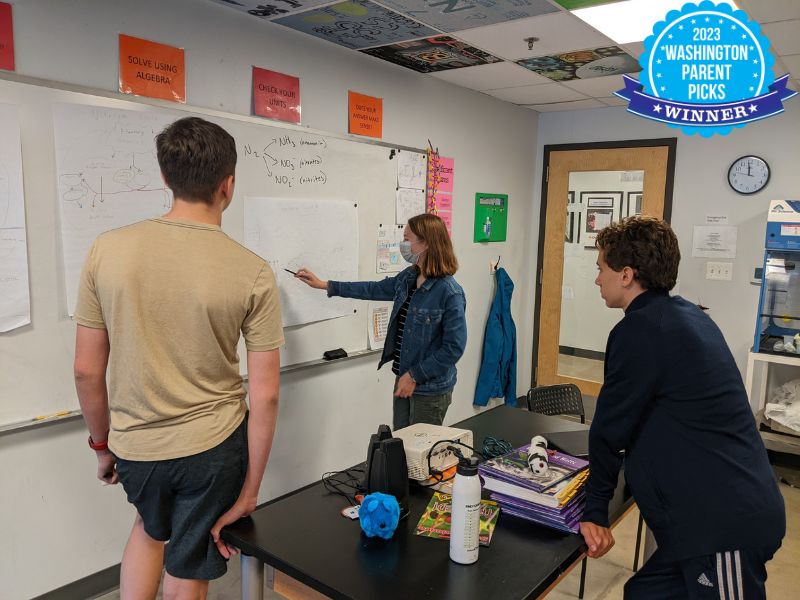The teaching of math is fascinating and complex. Math builds on itself and requires a mastery of prior material to fully understand the new material being presented. Solving difficult problems requires grit and patience. Think of it as analyzing a play in sports. As an educator, I have worked with many students and have found some common areas of struggle in math that, if addressed early, can help kids as they progress through school. Instead of focusing on the final score or the percentage correct, try to understand with your child if there is a common source of errors.
CHALLENGE: COMPUTATION ERRORS
Most kids develop number sense and the math facts through the math curriculum by 6th grade. However, there are a minority of kids who I still see computing on their fingers or struggling with a fraction in a high-school
physics class, losing focus on the actual physics problem that they were trying to solve. Access to more advanced math and science classes is hindered not because of an
understanding of the physical concepts, but because the students don’t have a sense of the order of magnitude to expect or spend so much time dealing with the numbers that they forget what they are solving for.
-
WHAT TO DO:
Spend time working on multiplication tables if they haven’t been mastered by the end of 6th grade. Once your child masters the multiplication tables, work on fractions.
CHALLENGE: COPYING MISTAKES OR NOT SHOWING WORK
These kids tend to rush through the work to
try to get through it as quickly as possible.
In elementary and middle school math, it
can work for them. However, by the time
they get to mid-high-school-level math and
science classes, a point here and there adds
up. Kids tell me that it doesn’t matter, they
understand the concept. I partially agree –
yes, understanding the concept is important,
and you can demonstrate that you know it by
showing your work. Walk me through your
logic, especially if you dream of a career as an
engineer, financier or doctor, where precision matters. I want the engineers designing
the plane I’m on to be precise, and I want my
anesthesiologist to be precise. Precision has
to start somewhere.
-
WHAT TO DO:
Praise the process, not
the speed. If your child is rushing to go
play a game, have the next activity be
something “less fun.” They won’t be in
such a rush to finish math.
CHALLENGE: NOT ASKING QUESTIONS
My trickiest experiences have been with
students who teachers would normally
describe as the “best” students in a class. In
the elementary years, they take notes, they
do their homework, they study and they do
well on assessments. They are well-behaved,
they nod, they smile – and they generally
don’t like to ask questions. All the external
signs they project in the classroom exude
confidence and mastery, except for not
asking questions. It’s not until they reach a
certain math level, usually Algebra 2, sometimes sooner, that we see the cracks. It’s like
watching a duck on water, calmly gliding on
the pond but furiously treading water below
the surface. For some kids it comes from an
internal and/or external quest for perfection,
for others it’s caused by their competitive
drive to not show weakness and yet for others, it’s because they compare themselves to
their classmates. The causes are complex and
working through this challenge is difficult. At
a certain point in their education, they will
need help.
-
WHAT TO DO:
Instead of asking your
child how they did on the test, ask your
child what good question they asked
that day.
CHALLENGE: NOT UNDERSTANDING WHAT IS BEING ASKED
This is where reading meets math. The language in math textbooks corresponds to age-equivalent language. There is also vocabulary
that is part of every field of study. We have
seen a correlation between reading comprehension and the math classroom. Also,
as students get older, more of the problems
become word problems that require reading
comprehension.
-
WHAT TO DO:
Read a challenging book
for 30 minutes a day. If your child is a
reluctant reader, explore the underlying
reason why.
At the end of the day, confidence in math
matters. Developing the skills above will help
children approach math with confidence.


